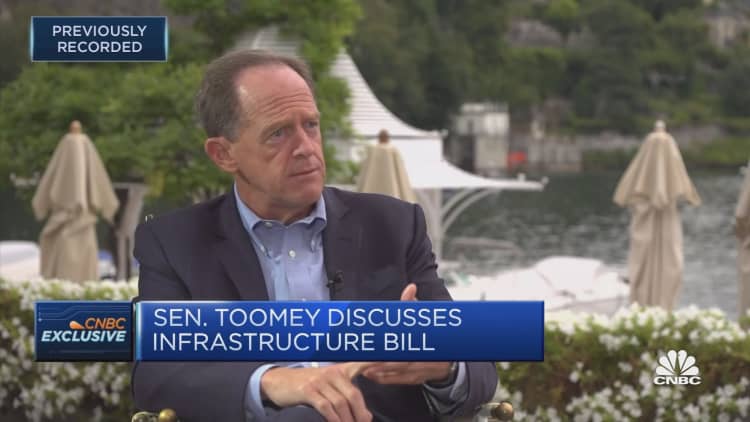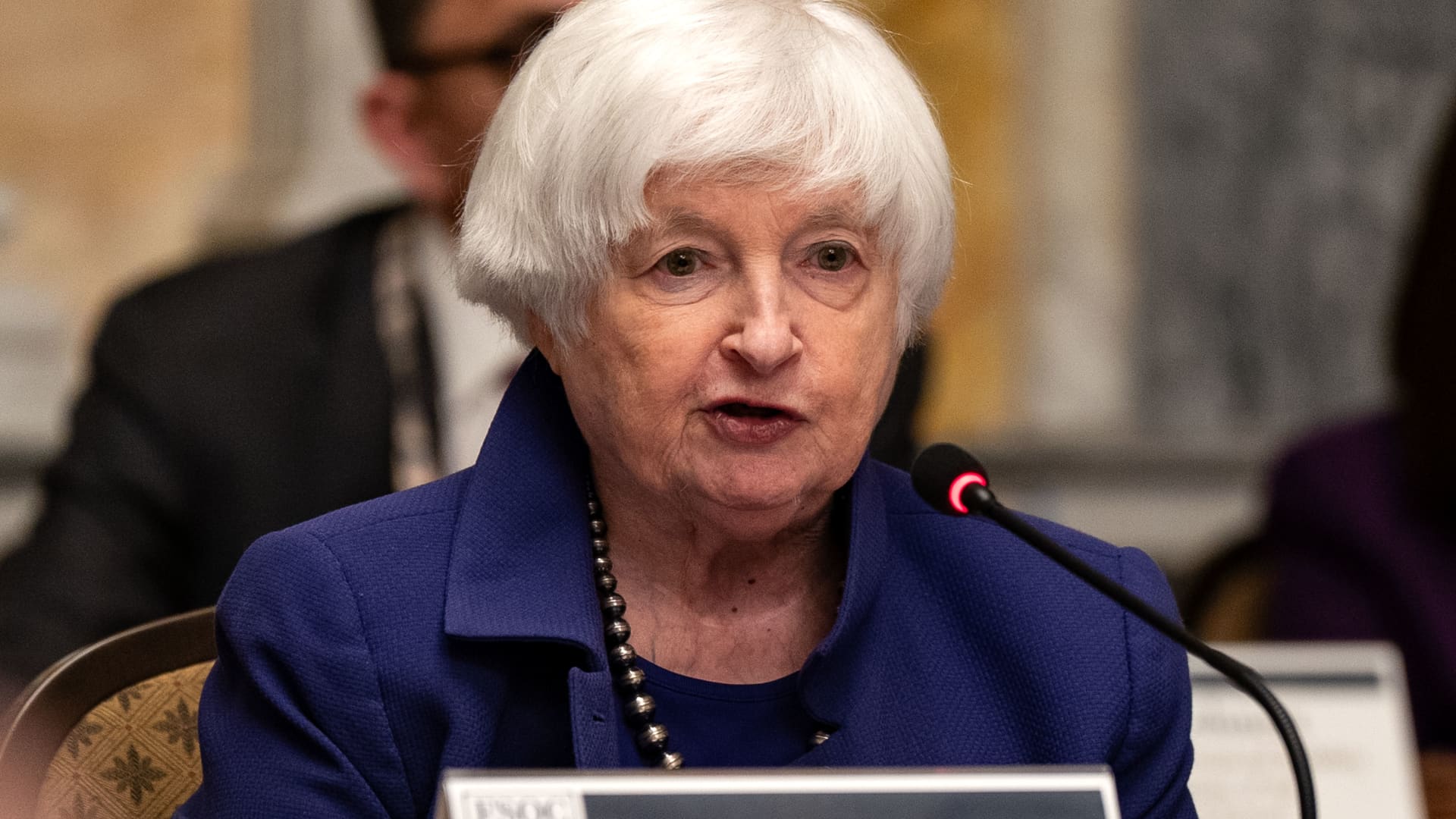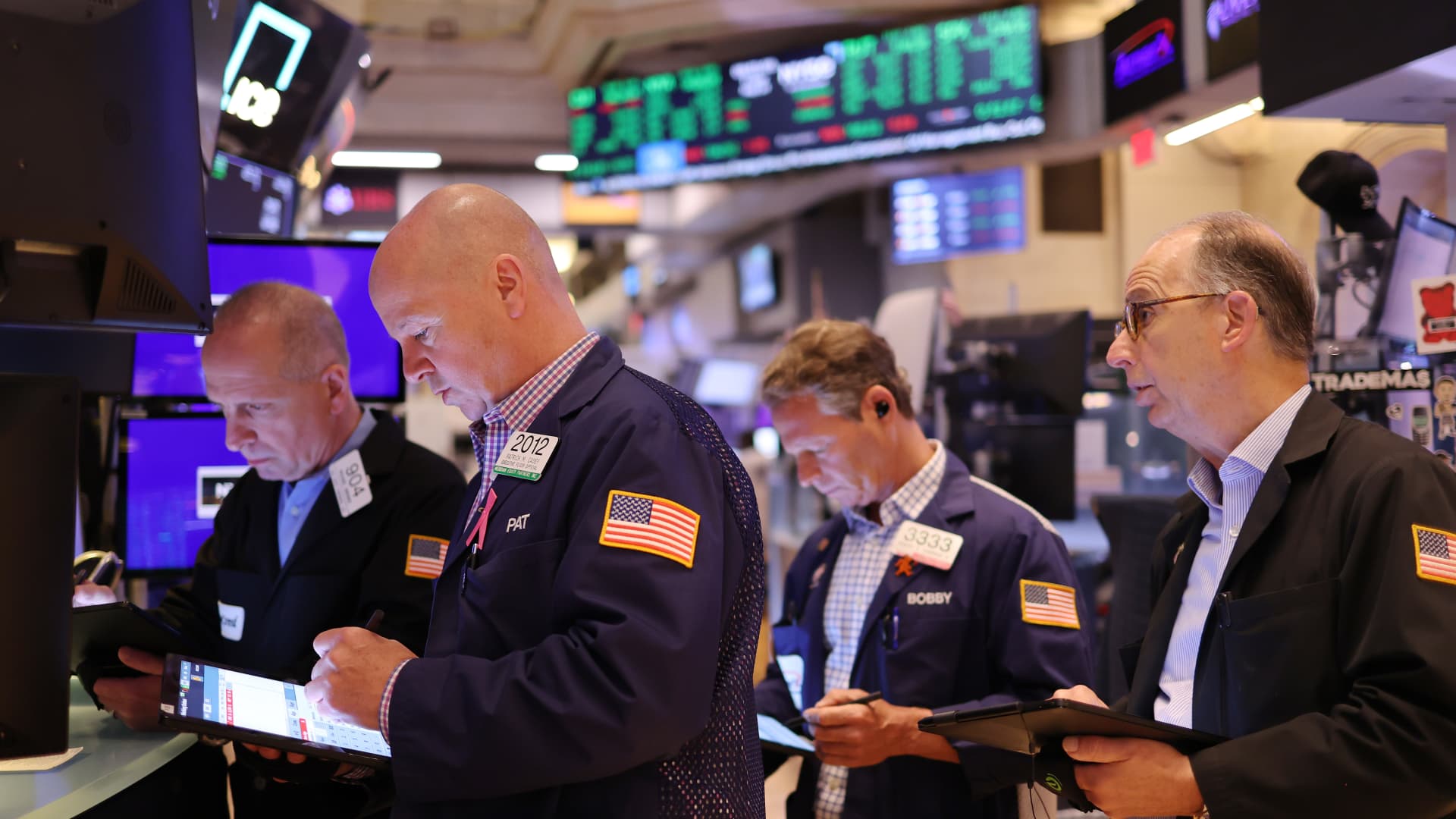Republican presidential candidate and former U.S. President Donald Trump shouts during a campaign event in Freeland, Michigan, U.S. May 1, 2024.
Brendan Mcdermid | Reuters
This reported column is Part One of Eamon Javers’ two-part series on the new, conservative economic populism gaining ground among Republicans close to former President Donald Trump.
Please check back Wednesday for Part Two, on the key figures who are leading this broad shift in how conservatives approach labor, free markets and regulation.
WASHINGTON — The first Trump presidency shattered conservative economic ideology on the Republican Party’s approach to free markets and tariffs.
A second Trump presidency could shatter it on everything else in economic policy.
That’s because the 2024 presidential election is playing out across a dramatically different economic and political landscape than previous Trump campaigns.
Conservative economic thinkers have now had at least eight years to construct an intellectual and policy framework around Trump’s instinctive economic populist message.
What they have come up with is a set of worker-first, anti-corporate elite policy proposals, which are increasingly popular within the party, and in Trump’s economic circles.
Taken together, the plans amount to a vastly different approach to the economy than the Reaganomic tax, regulatory and trade consensus that dominated the GOP from the late 1970s right up to Trump’s first election in 2016.
If Trump is elected president again in November, these proposals could be front and center in a second-term economic agenda.
I spoke to Sohrab Ahmari, a former Wall Street Journal editorial writer and one of the architects of this new populism, to get his insight into where conservative economics could be headed.
The vision that Ahmari laid out for me was one of a Republican Party that is worker-centric and vastly more pro-union than it is today.
At one point, Ahmari paused and I said, “I can almost hear the CEOs of Amazon and Starbucks having a heart attack listening to this.”
“Let them,” Ahmari shot back. “Let them choke on it.”
Trumpian neopopulism
Disdain for America’s corporate titans is a key element of the new conservative, populist approach to economics.
Steeped in the culture wars of the Trump era, these neopopulists do not see corporate CEOs as the Republican Party’s natural allies in a broader war against big government. Instead they view C-suite executives as woke elitists, trying to shove their liberal, cultural values onto Middle America.
They argue that the Reaganite low-tax, low-regulation, free-market ideology has not worked out very well for American workers, but it has worked out enormously well for corporate elites.
This moneyed class, the argument goes, does not live in the same places, or share the same values, as most social conservatives.
The new thinking urges conservatives to reject the kind of traditional, Republican economic dogma championed for decades in Washington by groups like the U.S. Chamber of Commerce and the Business Roundtable.
In its place, the new populists want to bring conservatives together to create a broader coalition, a sort of capitalist worker’s party of America. They also have a specific list of objectives.
Policy proposals for a second Trump administration
- Impose a 10% global tariff on all imports.
- Block American firms from investing in China.
- Block Chinese firms from access to U.S. capital markets.
- Impose harsh penalties for employees who fail to comply with immigration laws.
- Eliminate H-2A and H-2B programs for seasonal and agricultural workers.
- Award H1-B visas to the highest-paying employers.
- Create a $100 billion National Development Bank for critical infrastructure.
- Repeal the National Environmental Policy Act of 1970.
- Reform corporate bankruptcy to mandate six months severance for all employees and one year’s tax liability for local communities.
- Require private firms hired by public pension funds to publish annual performance data.
- Impose a financial transaction tax of 10 basis points on secondary market sales of stocks, bonds and derivatives.
- Ban stock buybacks and eliminate tax deductibility of interest.
Source: AmericanCompass.org
To be clear, this is not yet the dominant strain of Republican economic thinking in Washington. But it’s indisputably on the rise.
Bolstered by Trump’s success in reshaping the GOP in his own image, the new populism aims to capture the political energy of Kid Rock shooting up cases of Bud Light, and inject that into the dusty corners of macroeconomic thinking.
If Trump wins the November election, this new thinking could be felt in every economic decision his second administration makes. It could also upend old alliances, by seeking to return economic power to employees over employers, and to local communities over national elites.
Even if Trump is defeated in November, this new approach to economics will likely make a mark on the policy fights coming up next year over unionization, tariffs and whether to preserve the 2017 corporate tax rate cut.
Recognizing ‘work matters’
The neopopulist ideas emerging on the political right are being refined and promoted in Washington by an embryonic network of institutions. Chief among these is the nonprofit think tank American Compass, founded in 2020 by Oren Cass.
Cass argues that Republican economic policy has been focused on the wrong goals: lowering prices and increasing consumption.
Instead, he says, Republicans need to focus on production and value creation. “The conceptual shift is the recognition that work matters and production matters,” Cass told me.
“It was absolutely black letter economic doctrine that the point of economic policy was to consume as much as possible. But not all markets are productive markets. And there’s nothing that guarantees that the things that optimize profits are things that are socially beneficial.”
To hear Cass tell it, most of the damage to America’s social fabric has been driven by decades of offshoring in the US manufacturing sector. To solve this problem, he and others like him want to see across-the-board tariffs.
Bronco SUVs in production at Ford’s Michigan Assembly plant, June 14, 2021.
Michael Wayland | CNBC
Cass is also harshly critical of Wall Street: “The private equity and hedge fund industries do not generate value,” he said in our recent interview. “They extract value from the economy.”
“Three hundred billion dollars in fees for the hedge fund industry is not $300 billion in value,” he added.
What Cass and the other new conservative economists have in mind is the use of muscular state power – something once entirely opposed by conservative politicians – to push companies toward a more socially beneficial way of work.
“The goal is to make productive activities more attractive and unproductive activities less attractive,” Cass said.
Cass’ approach to the economy could have stark consequences for Wall Street. He envisions a financial transaction tax designed to make trading assets more expensive and decrease what he sees as the financialization of the economy.
Biden also supports a financial transaction tax, as he explained on CNBC during his 2020 campaign.

“Spinning assets in circles creates nothing of value, and in fact creates the opposite of value,” Cass said. He would also force public pension funds to invest their entire portfolios in US domestic investments.
For Cass, tax cuts – traditionally the top Republican priority – are simply not on the list. “There are times when tax cuts are needed , like in the ’70s, sure,” Cass said.
“But to elevate these things to dogma and say that is always the answer and more is always better is not conservative at all. This old ‘thou shalt not raise taxes’ is a thing of the past.”
A ‘serious threat’ to the GOP
None of these ideas are the type of economic thinking that executives on Wall Street or Silicon Valley would expect to hear if there were an incoming Republican administration.
“The most charitable thing to call this would be economic populism,” said former Pennsylvania Republican Sen. Pat Toomey, who left office last year.

“But realistically, this is left wing collectivism and statist central planning.” Toomey said it is unclear how much of this new thinking Trump might adopt, if he were to be elected president again.
“I think this is a very serious threat to the Republican party,” Toomey told me. “There will be a lot of people who will leave the Republican party if it seems like it’s becoming a party that has more in common with the left.”
Coming Wednesday: Part Two of Eamon Javers’ reported column on the new conservative populism. This time, Javers looks at the key figures leading the shift in how Republicans approach labor, free markets and regulation.





